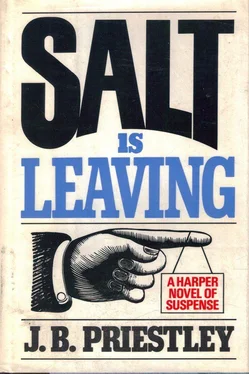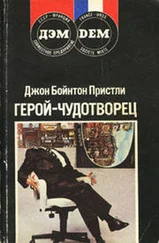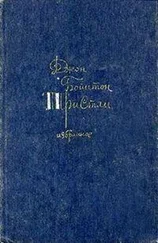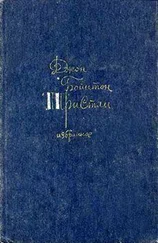"Yes, he was out. Probably knocking them back somewhere. Why, Mother?"
"She could have been lying. Perhaps your father asked her to say he wasn't there-"
"No, lady, I can't buy that," Alan told her, doing his American act. "She's not that good a performer. She was gen-u-winely surprised, ma"am."
"Besides, Daddy would never ask her to tell a lie for him." Maggie was indignant. "He isn't that kind of man."
"He certainly isn"t, sister."
"Oh – do be quiet, both of you. I'm trying to think where he could have gone, intending to spend the night. What about some silly book sale, a long way off?" She looked at Maggie.
"It's just possible," said Maggie carefully. "But I doubt it. I suggested that to Bertha Chapman and she said he wasn't keen on sales now and that anyhow he looked different – really worried-"
"I don't want to know what Mrs Chapman thinks," her mother told her sharply. "She's always seemed to me a stupid woman. Now be quiet and just let me think."
During the next hour she thought aloud of various relatives and some dubious old acquaintances, but Alan flatly refused to try to trace them on the telephone and told the women they were making a fuss about nothing. His mother finally pretended to believe him. Maggie didn"t, and she took her deepening anxiety to bed.
3
Next morning, Tuesday, was fine, with that curious mixture of a mellow sunlight and a smoky atmosphere peculiar to early autumn. Maggie felt less anxious than she had done the night before, the sunlight and stir of the morning making everything seem more reasonable and reliable. Nevertheless, on her way to the shop she decided to inquire about her father at the bus station. There was no longer a railway connection between Hemton and Birkden, the nearest large town, apparently in order to make the road between them even more congested with buses and cars, to Maggie's disgust because she liked trains, hated buses and could not afford a car of her own. (The only Culworth car was Alan"s, an old sports model, really too small for him and almost too small for anybody else. Moreover, it was very noisy, given to sinister explosions.) Even though it rules Hemtonshire, Hemton itself is a small town, not a tenth the size of Birkden, but it is the centre of a considerable network of bus services.
So Maggie wandered about the bus station, feeling an idiot. The drivers and conductors she tried couldn't care less about a man in his late fifties wearing a grey suit and carrying a small brown suitcase. She was just telling herself to give it up when, as often happens, a bit of luck came her way. An older man, some kind of inspector, asked her if she wasn't Miss Culworth of the bookshop. And when she explained why she was there, he said: "I know your father, of course, and I had a word with him when he was here yesterday. Yes, he had a bag with him. And he caught the 1.35 bus to Birkden Central. Oh – yes, I'm positive, Miss Culworth."
Well, now she knew something, but not much. He might have gone to Birkden on the way to somewhere else. Then she seemed to spend half her day dodging in and out of the main shop, to and from the little back office, to see if her father had come back. She said nothing to Sheila and young Reg, but whenever Bertha Chapman was free she asked her useless questions or gave her useless answers. There were not many telephone calls – there never were – but the people who did ring up were answered abruptly by Miss Culworth, just because they weren't her father. There was no news at home at lunchtime, and now her mother was really worried. Maggie rang her up in the middle of the afternoon, only to be told that no telegram, no letter, no anything, had arrived.
"But so what?" This was Alan, cutting short their vague feminine speculations over the supper table. "You"re going on like a pair of witches. It's ridiculous. You might be talking about Aunt May's Albert. So far Dad's been away one night. All right, we don't know where he is. But does it matter? He's just about the most respectable careful man in Hemtonshire. Cautious – considerate of himself and everybody else-"
"But that's the point," cried Maggie. "Just because he is like that, then why hasn't he let us know where he is? It simply isn't like him. Apart from Mother naturally wanting to know, I have to know because of the shop. There are things waiting for him to sign, and he knows that. Unless – something's happened to him-"
"Just what I've been wondering," said Mrs Culworth rather miserably.
"But – for Pete's sake – what could have happened to him?" Alan still sounded exasperated.
"How do I know, you idiot?" Maggie began sharply, but then trailed off. "Something – anything-"
"Look – if you"re thinking about accidents, then don"t. If he'd been involved in any serious accident, we'd have been told by this time. He's got various things in his wallet that would identify him. Business cards and private cards with addresses and telephone numbers on them. You suddenly become important when you've been in an accident. No, that's out."
"But what if he'd had his wallet stolen?"
"What? And then had an accident? That's too much."
"What if he's lost his memory?" Which seemed silly to Maggie as soon as she'd said it.
"I can do better than that," said Alan. "What if he's barmy and is now addressing a street-corner meeting in Birkden or Birmingham, telling "em he's John the Baptist?"
Maggie giggled. Their mother told them both that that was quite enough of that. "Now listen, Alan. If we haven't heard anything by – well, say, ten o"clock – then you must go to the police-"
"Honestly, Mother, they'll tell me I'm wasting their time. It'll make me look a fool."
"Well, I don't care if policemen think I'm a fool," Maggie announced with more heat than truth. "If you won't go, I will."
"They'll take much more notice of Alan, dear-"
"Why should they? Just because you do-"
"Maggie, I won't have you speaking to me in that tone-"
"Drop it. You"re both on edge," Alan told them. "I'll go, but Maggie can come with me. That'll make us look twice as silly or half as silly – I haven't worked it out. Which reminds me – I have some work to do. But I'll be down just before ten."
He wasn"t, but it was only about quarter past ten when they arrived at the police station. It was so near that even Alan, who hated walking, agreed that they needn't take his car. That was one reason why Maggie didn't feel fussed about marching into a police station: this one was so near home. The other reason was that she had now seen so many police stations on television.
This one didn't look any different, and the sergeant across the counter was first so polite and then so much like a kind uncle that Maggie began to feel they were all characters on television. He listened quite carefully and made a few notes on his pad. But his meaty face, his uniform, the telephones that kept ringing, the general atmosphere of the place, did combine to make their appeal to him look very small and silly. Alan did almost all the talking. Maggie felt that while the sergeant might be ready to lend her a handkerchief, give her a cup of tea, pat her hand, he wouldn't want to listen to her very long. And Alan, of course, was really on the sergeant's side; they formed immediately, on sight, one of those irritating masculine alliances.
"Well, let's see, now," the sergeant said finally, still their dear old uncle no doubt but not having any more time to spare for them. "Mr Edward Culworth packs a bag and takes the bus to Birkden yesterday early afternoon. All you know is that he was urgently called away – might be business – might be a private and personal matter. It's inconvenient and a bit worrying that you don't know where he is and when he'll be coming back. Eh? Quite so. Well, I think you can take it for granted that he's not met with a serious accident. All I can do is to put through a call to the Birkden police asking them to let us know about Mr Culworth if anything should come to their notice. And I must say I'd rather do that tomorrow night about this time – that is, if you've still heard nothing – than do it now."
Читать дальше










